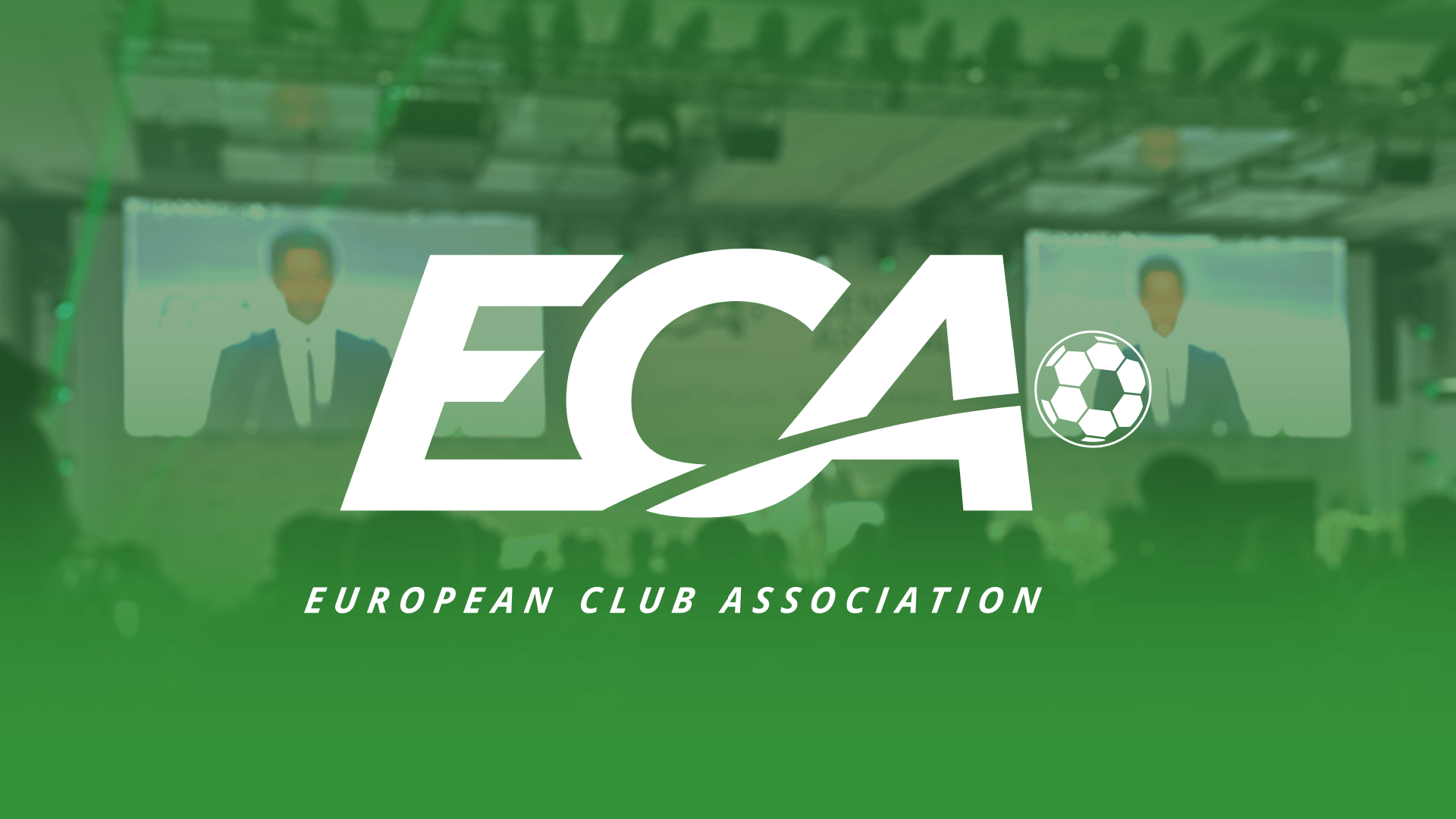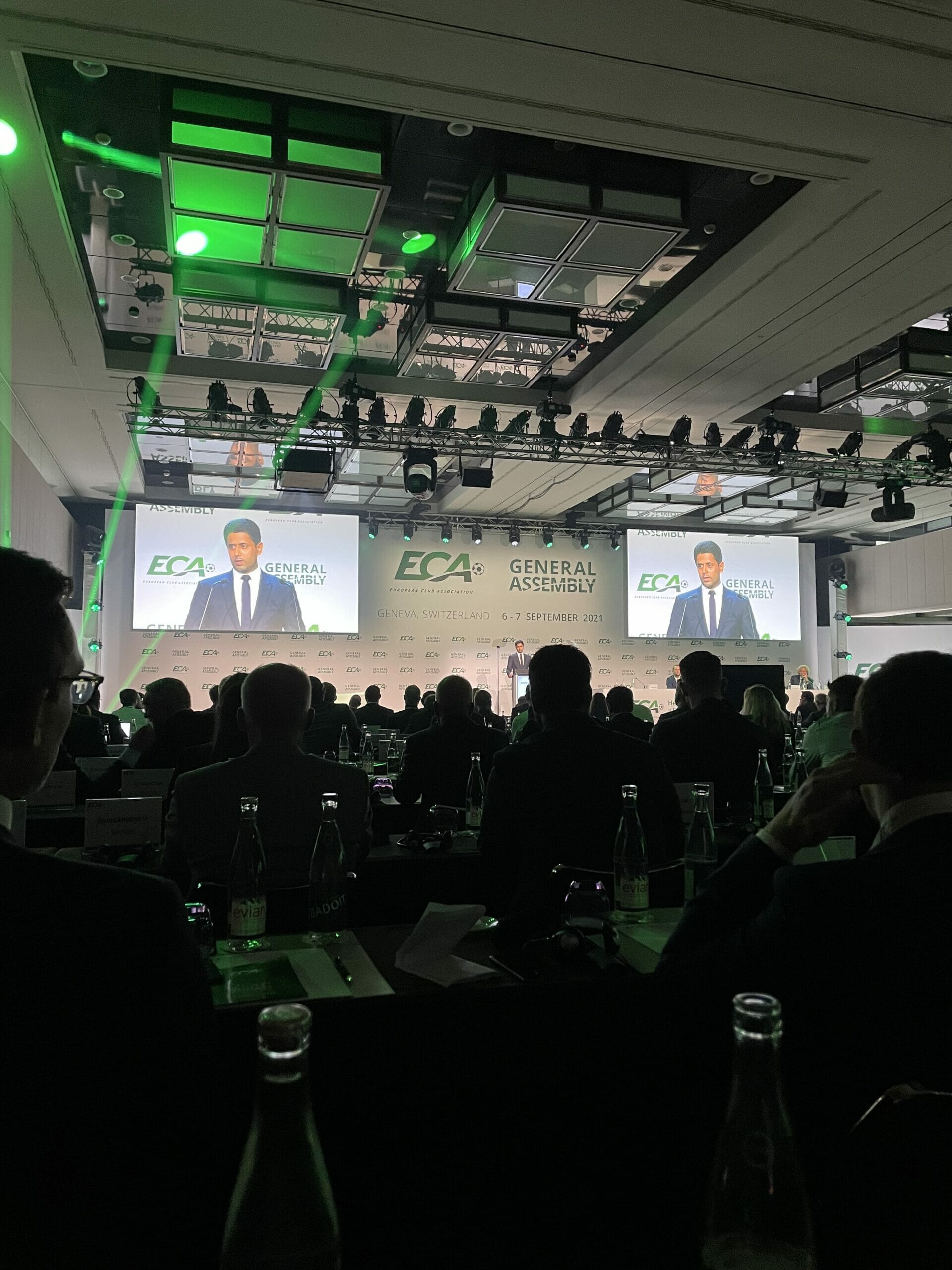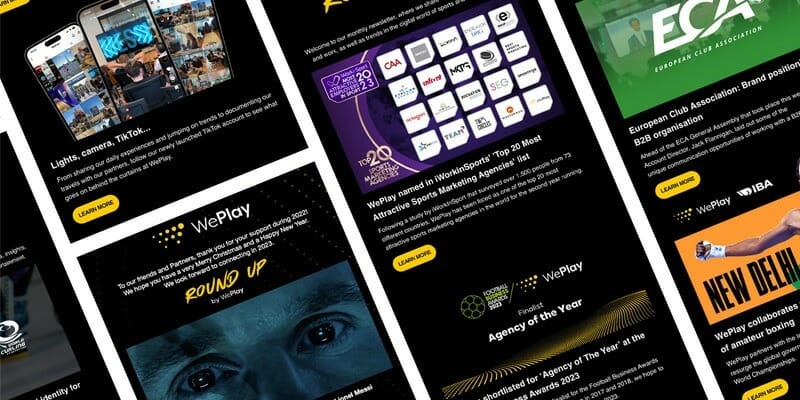
European Club Association: brand positioning for a B2B organisation
At WePlay, most of our partners want to build and engage their digital audiences with consumers in a way that enables revenue growth. However, that is not the only type of communication challenge we take on.
For the past few years, we’ve collaborated with the European Club Association (ECA), a body that has been representing the interests of professional football clubs in Europe since 2008.
As a B2B organisation, the ECA plays a vital role in facilitating communication and collaboration among its members. Representing 245 professional football clubs from across Europe, the ECA works closely with UEFA and other stakeholders in the football industry to ensure that its members’ interests are represented at all levels.
Initially, our remit primarily concerned their social media strategy. However, since then, we have broadened our scope of influence to encompass community management, content creation, as well as content execution across ECA’s core channels.
Over time, we have gained valuable insights into the unique marketing challenges faced by B2B organisations such as ECA.
ECA has gone through significant internal changes and has been at the centre of some of the game’s biggest, most emotive stories. Consequently, we have needed to be malleable and willing to adapt to their evolving business needs, as well as responsive to how their influence is perceived.
There have been times in the last couple of years when responsible communication has been particularly essential.
The European Super League breakaway attempt of 2021, which threatened lasting division and led to a change of representative leadership at the top of the ECA, demanded a clear, firm line around which members could reunite. Debates around the concept have continued among ECA’s member clubs, with the A22 agency releasing a new proposal in February 2023, and it has been crucial to retain that consistency.
As a B2B organisation, inconsistent and irresponsible communication could harm ECA’s reputation and credibility, as well as damage relationships with certain member clubs.
In these circumstances, the status of a B2B entity like ECA requires special consideration. While some football bodies can be more aggressive or even poke fun at moves they oppose, as a representative organisation, ECA must carefully consider the concerns of all its members and choose its tone of voice accordingly.
Every communication needs to be carefully thought out; every word that goes public requires multiple eyes for sign-off, and every piece of punctuation examined. It’s important that ECA’s messaging isn’t taken out of context and is always speaking for their member clubs equally.
That sensitivity extends to many wider issues that matter to those involved in European football. The different leagues are operating at their own levels financially; they have varied priorities and their fans are passionate about their interests. Everything from competition rule changes to transfer window activity can elicit a strong reaction.
ECA statements will inevitably attract attention and on social media that produces its own community management challenges. There can be flashpoints that follow controversial news, and that negativity can find its way to ECA accounts – even when the organisation is not at the centre of the dispute.
All of this only underlines the importance of building awareness of ECA, its role and influence among football fans, and growing the reach of its social channels. By encouraging vibrant, well-informed conversation, it can better serve its members and foster a more inclusive European club football community.
Positioning the European Club Association
It’s crucial to recognise that every member of ECA holds equal significance within the organisation – whether that is globally famous teams like Paris Saint-Germain F.C. and Manchester United F.C. or (for example) Shamrock Rovers and AEK Athens F.C. Despite the significant attention given to the more prominent teams, it’s vital to ensure that the fundamental ECA initiatives remain at the forefront and not overlooked.
This means that communicating their activities to both a B2B audience – the club game in Europe – and to fans is very important. Through the 2021 to 2023 period, for example, ECA’s Women’s Football Strategy has been central to the organisation’s ambitions. They are aiming to drive up the levels of professionalism, both in terms of the quality of the football and in behind-the-scenes aspects like payments and logistics.
Some clubs are better positioned than others to deliver that change so knowledge exchange is hugely valuable. That might happen at ECA’s General Assembly, a behind-closed-doors event which gathers all the member presidents, CEOs, CMOs and other senior figures every six months.
But it also happens through ongoing collaboration within the membership. AS Monaco recently held the latest instalment of the Youth Football Knowledge Exchange series, a travelling workshop bringing together industry leaders with representatives from smaller clubs to talk about youth recruitment and development.
ECA wants to highlight those projects while also acting as a forum for new ideas and including fans in the dialogue about the future of football. The goal is to position it as the go-to authority for any matters related to the club game. Therefore, alongside standard reporting, content calendars, and other services that help stimulate and sustain the growth of ECA’s social channels, WePlay has a brand positioning strategy to execute.
The bottom line
Unlike B2C messaging strategies, which are designed to appeal to a large and diverse consumer base, B2B messaging strategies, such as those used by ECA, rely heavily on maintaining strong relationships with its members, who are key stakeholders in the organisation.
Inconsistencies in messaging could cause ambiguity, potentially damaging these critical relationships and their reputation. Therefore, it’s essential to ensure that ECA projects a consistent and credible image to its members
By ensuring that its messaging is well-received by its members, ECA can achieve its objectives and maintain its position as a leading authority on club matters, aligning with its overall strategy.
Contact us today to learn how we can tailor our services to meet your specific business needs and help you achieve your growth goals.




